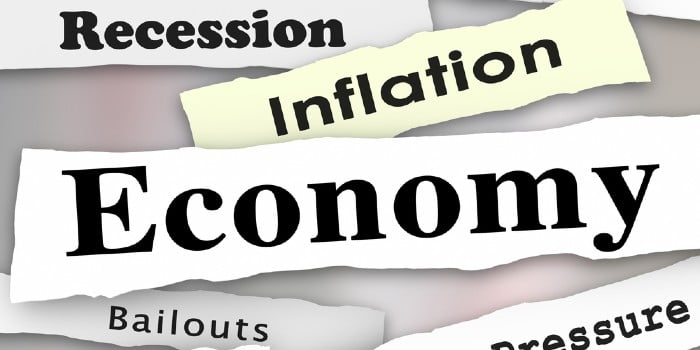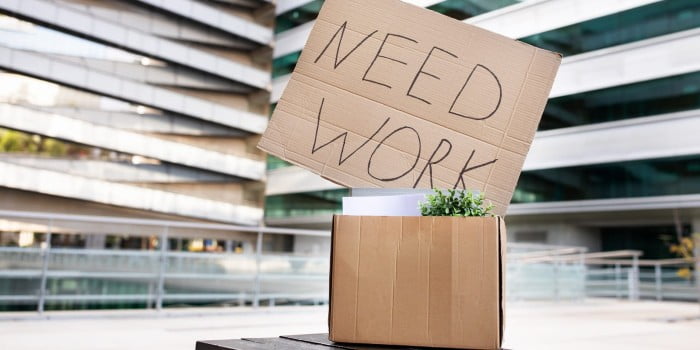According to new data by accounting service Xero, small and independent retailers are impacted the most by declining sales, with a fall in sales volume for July of 6.9% compared with other industries a year ago.
For their monthly index, Xero analysed data from the accounts of hundreds of thousands of small businesses and the figures show, that small and independent retails are hit the hardest by the fall in sales volume.
In July, sales only grew by 4.5%, which is a significant decline from 6.1% of growth in June and 20.8% in May of this year.
However, this growth has come from price increases, rather than a rise in sales, as the figures show there was a fall in sales volume by 4.3% year on year in July.
Fall In Sales Volume And Late Payments Are Taking Their Toll On Small Businesses
While the lifting of Covid restrictions has meant people have returned to high streets, rising inflation and the cost-of-living crisis has reduced the spending power of most consumers.
This has led to people focussing on essentials, which in turn resulted in a fall in sales volume, especially for small and independent retailers.
Most small businesses have seen their sales fall by 6.9% year on year, but those in the information, media and telecommunication sector, administrative support and rental, hiring and real estate have seen their sales figures grow faster than inflation.
Small businesses in the information, media and telecommunication sector have seen a 9.6% increase in sales compared to last year. Sales for enterprises in administrative support have risen by 13.3% year on year.
And the rental, hiring and real estate sector had a sales growth of 9% compared to last summer.
On top of falling sales and increasing costs, small businesses also have to content with late payments. While this has been a big issue for quite a while, it is getting worse.
According to Xero, in July, small businesses selling to other businesses had to wait on average 30.4 days to get paid. This is an increase of 0.4 days from last year.
Late payments have risen by 0.7% compared to June and small businesses now have to accept that on average payments are late by 8.3 days.
Xero has also undertaken a survey of large organisations and 79% of those admitting to paying late have said they are aware that they are making late payments and what impact it can have on smaller businesses.
It’s disappointing to see that many small firms are not being paid the money they’re owed on time. Most large businesses are fully aware of how delays in payments can impact their suppliers, limiting their ability to pay for bills, resources and staff.
Jo Copestake, UK Sales Director at Xero
Small Businesses Desperate For Support From Government
Small businesses, various industry bodies and politicians from opposition parties have called on the UK Government to act urgently to help small businesses survive this crisis.
While Boris Johnson has made it clear on several occasions that his government will not make any fiscal decisions as this is something for the new Prime Minister to decide, the Chancellor Nadhim Zahawi has said that he and Treasury officials are working on proposals to support small businesses this winter.
One suggestion is to repurpose Covid schemes to provide small businesses with grants to help them with high energy bills.
As the funding mechanisms for the Covid support schemes are already in place and have been proven to work, this option could quickly and easily be adapted to help small businesses this winter.
Other suggestions include the re-introduction of VAT and business rates holidays to bring down the over all costs for small and medium enterprises (SMEs). These measures have been introduced during the pandemic to support the hart hit hospitality, leisure and tourism sectors during national lockdowns.
But while these ideas from the Chancellor might give SMEs a lifeline, it is up to the new Prime Minister, who will be announced on 5 September, which, if any, of these proposals are implemented.
Leadership hopeful Liz Truss has already announced that she will hold an emergency budget on 21 September, if she becomes Leader of the Conservative Party and Prime Minister.
However, she has not set out any concrete plans on how she will help small businesses and households with rising costs.
Her rival for the top job, Rishi Sunak, has also committed to helping people and SMEs, but again, we have not heard any details what this help will look like.
Meanwhile, small businesses are left in limbo, worrying about the future of their businesses and not knowing if they are able to survive the next few months.
There’s a huge amount of worry, because although there have been interventions from the government to help households with the energy situation — and rightly so — there haven’t been any interventions to help businesses, despite the fact we have been talking about these issues for a year now.
Paul Wilson, Policy Director at the Federation of Small Businesses






